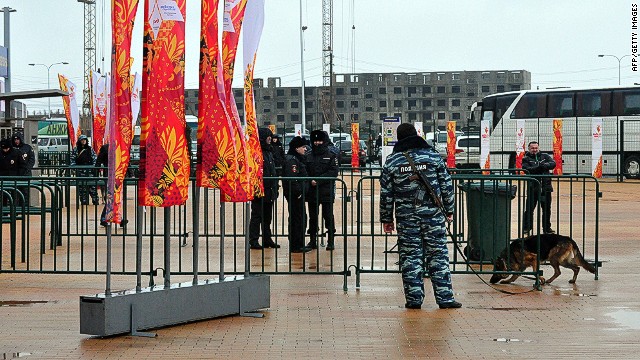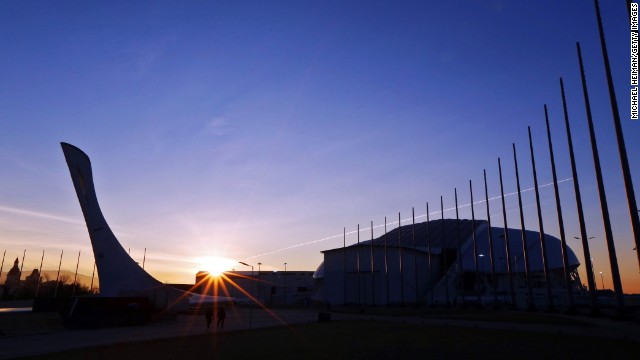Story highlights
- Runner carries the Olympic torch through Dagestan
- Russia's U.S. ambassador tells CNN he's "certain" the Games will be safe
- A new statement from Islamist militants threatens further attacks in Russia
- An athlete tells CNN his family is staying home due to safety fears
The Olympic torch has wound its way through more than 100 cities in the relay leading up to next month's Winter Games in Sochi, Russia. But the turn it took Monday highlighted a fear held by many people across the globe.
A runner carried the torch through Makhachkala, capital of Dagestan -- a region embattled by Islamic insurgents.
The event went off without a hitch, with security in place and some cheering supporters lining the streets. But the international focus on that moment served as a reminder of the militants who have carried out deadly attacks recently in Russia, and who have threatened more.
Russia is working to "ensure that there will be joyful, peaceful, and successful Olympic games," the country's ambassador to the United States, Sergey Kislyak, told CNN on Sunday, insisting he is "absolutely certain" the Games will go off without any terrorist attacks.
But Rep. Peter King, R-New York, a member of the Homeland Security Committee and chairman of the Subcommittee on Counterterrorism and Intelligence, said he cannot give a "100% guarantee."
"These are going to be very much threatened Olympics -- probably more than any we've had in our past," he told ABC's "This Week."
In a statement posted Monday on an Islamist website, militants wrote that "Russia has been warned."
Pointing to recent deadly bombings in Volgograd, the group said, "Mujahideen are guided in everything by Sharia," referring to Islamic law -- which, the statement said, allows for killing women and children if they cannot be separated from men in such attacks.
Many Islamic scholars insist Muslim law does not permit killing innocent civilians.
The statement did not specifically mention the Olympics or Sochi.
The United States has offered counterterrorism expertise, equipment and warships to help Russia through the Olympics.
"Whatever we can do, we want to do to help, but right now there has been no request from the Russian government," Defense Secretary Chuck Hagel said Friday.
Some athletes' families staying home
Washington has warned U.S. athletes not to wear their uniforms outside the Games' so-called "Ring of Steel."
Some athletes' families are staying home.
"The threat is real," said Roberto Carcelen, an Olympic cross-country skier, in an interview from Russia on CNN's "New Day."
"The Olympics are built on the foundation of peace and freedom values, so this is kind of the perfect environment for terrorist groups" to have their voices heard, he said.
"I really wanted to go," his wife, Kate Carcelen, told "New Day." "I wanted to bring my daughter. She's 6, so it would be a really great experience for her." But amid growing fears of an attack, she said, Roberto acknowledged that it would be stressful for him to worry about their safety while competing in the Olympics.
"I'm going to be up training in the mountains while the family would be down in the city outside the Olympic rink," he said. "So that puts a lot of pressure on me as an athlete."
Sequocoria Mallory-Lucas, mother of U.S. bobsled team member Aja Evans, is still planning to attend.
"She is doing fine as far as feeling assured that she's going to be OK and safe and that we will be OK and safe," Mallory-Lucas told "New Day."
"I'm not afraid to go -- I'm excited about going. And I'm certainly encouraged that the United States has offered to lend a hand to Russia and that Russia has really made this a top priority, their security concerns and preparation."
If needed, the United States will extract its citizens, Hagel said.
That's part of a standard security plan, said Fran Townsend, CNN national security analyst and former U.S. counterterrorism adviser.
Americans who attend the games, Townsend said, should register their trip with the U.S. government. They should also be cognizant of their environment and find out about the tip line for security services while they're in the country.
"If you're going, you just want to be smart about it," she said.













